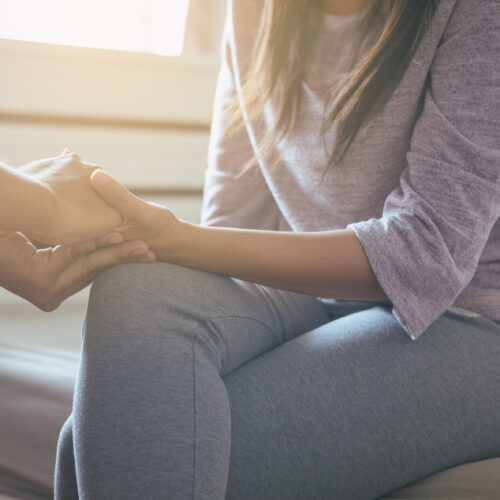One in five women are thought to have experienced rape or sexual abuse as adults, and approximately one in twenty have experienced sexual violence as children.
Around 90% of female victims and survivors are raped by someone they know, and in almost half the cases, it is by a partner or former partner.
At RoSA, we are committed to creating an environment where women feel safe and confident to seek support. Our service provides assistance and care that is tailor-made to individuals’ needs.
Most sexual crimes against women go unreported. There are many myths about rape and other forms of sexual violence, which contribute to stigma, and often women keep what has happened to them a secret, afraid of the consequences of speaking out.
As well as suffering physical injury and emotional trauma, women are often left with feelings of guilt and shame alongside a loss of identity and belief in themselves. This can impact social relationships, parenting, intimacy and performance at work, to name a few.

We recognise that some female victims and survivors feel inhibited around men, and we always provide an option of a female counsellor and all-female support groups.
Where possible, we provide the support that can fit in around parenting schedules. Many women have told us that accessing RoSA’s support from home (via the phone or online) gives them more flexibility. It can be beneficial for people who find it difficult to leave the house.

Women can access support from our Independent Sexual Violence Advice service, which offers emotional support and practical assistance, particularly with matters around reporting.
They can also join our support groups and receive 1:1 counselling, which provides a safe, non-judgmental and confidential space where they can gently process trauma and reduce its impact on life moving forward. All our services are free to the clients who access them.
Services provided by RoSA
- Adult Counselling: Our team of counsellors offer 1:1 counselling specific to your needs.
- Pre-trial therapy: Pre-trial is counselling that is offered to a victim or witness while the criminal justice process is on-going and a trial may be possible.
- Independent Sexual Violence Advisors: Accredited ISVAs offering practical and emotional support guided by you and tailored to meet your needs.
- Children and Young People Team: Providing counselling, art & drama therapy and ChISVA (Children’s ISVA) to children from age 5
- Trauma informed courses: Group or 1:1 training to equip you with the skills needed to deal with anxiety and the after effects of trauma on a day to day basis.
Myth: If someone gets drunk, it’s their fault if they get raped. They should have kept themselves safe.
Reality: People have the right to drink alcohol without getting raped. Having sex with someone who is very drunk, drugged or unconscious is rape – and it is always the rapist’s fault.
Myth: Women often lie about rape because they regret having sex with someone or because they want attention.
Reality: Stories in the media can show that women often lie about sexual violence. In fact, false allegations of rape are very rare. Furthermore, most people who have been raped or experienced sexual violence or abuse never tell the police.
Myth: If you are in a relationship with someone, it’s always OK to have sex with them.
Reality: Everyone has the right to say ‘no’ to any sexual activity, including with their partner. Consent must be given and received freely every time. Rape in a relationship is illegal.
Myth: Women provoke men to rape them by wearing revealing clothes or flirting.
Reality: It doesn’t matter what a woman is wearing or how she is behaving – if she doesn’t consent to sex, that is rape. Only the rapist is ever responsible for rape.
Myth: Once a man is sexually aroused, he can’t help himself; he has to have sex.
Reality: Men can control their urges to have sex just as women can. No one needs to rape someone for sexual satisfaction. Rape is an act of violence and control. It can’t be explained away, and there are no excuses.
Myth: When it comes to sex, women and girls give out mixed signals. They sometimes ‘play hard to get’ and say ‘no’ when they really mean ‘yes’.
Reality: Everyone has the legal right to say ‘no’ to sex and to change their mind at any point. If the other person doesn’t stop, they are committing sexual assault or rape. When it comes to sex, we must check in with our partners, respect their wishes and believe what they tell us about what they do and don’t want.

